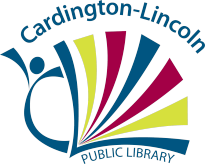
Join us every Wednesday for Pre-K story time. Kids ages 3-5 (younger siblings are welcome, as well!) are invited to join us for stories and activities designed just for them! Check out our calendar for dates.
Pre-K story time follows the Cardington-Lincoln Local Schools weather advisories. If there is a snow day, story time will be canceled for that day.
Story Times follow Every Child Ready to Read® @Your Library® an education initiative project of the Association for Library Service to Children and the Public Library Association
- Print Motivation: interest in and enjoyment of books and reading.
When a child's first experiences with books are fond memories of being read to, they will be more motivated to engage in reading for enjoyment. Children who enjoy reading are more likely to succeed in school.
- Phonological Awareness: the ability to hear and manipulate the smaller sounds in words (rhyming, syllables, starting sounds).
Before a child can learn to read, they learn to hear the different parts within words. This is the building block for connecting the individual sounds in words to the letters that correspond to those sounds.
- Vocabulary: knowing the names of things, including objects, animals, and other concrete things as well as abstract things such as feelings, concepts, and ideas.
Children with larger vocabularies are more easily able to sound-out words as they read. By having a basis for what words they may encounter in text, children can make predictions about words that would make sense in the context of the story.
- Narrative Skills: the ability to describe things and events, as well as tell stories.
Children are natural born story tellers, fostering these skills allows children to be more able to express themselves and their needs. Children with strong narrative skills have an easier time comprehending what they are reading. Understanding the structure of a story gives children an innate ability to recognize the important parts of a text. (For example: an event at the end of a book was brought about by something that occurred at the beginning of the story)
- Print Awareness: the ability to notice print, to know it has meaning, and to understand how to handle a book and follow print in a book.
Before children begin to read, they must recognize how to use a book: where is the front cover, which way is right-side-up, what page do you begin reading on, and in what direction do you read.
- Letter Knowledge: knowing there are different letters that have different names and sounds.
The first step when beginning to decode words is identifying the individual letters within words, and recognizing the sounds associated with those letters. Letter knowledge also includes understanding that each letter has an uppercase and lowercase form, but both relate to the same sound.
For more information visit: https://ohreadytoread.org/
